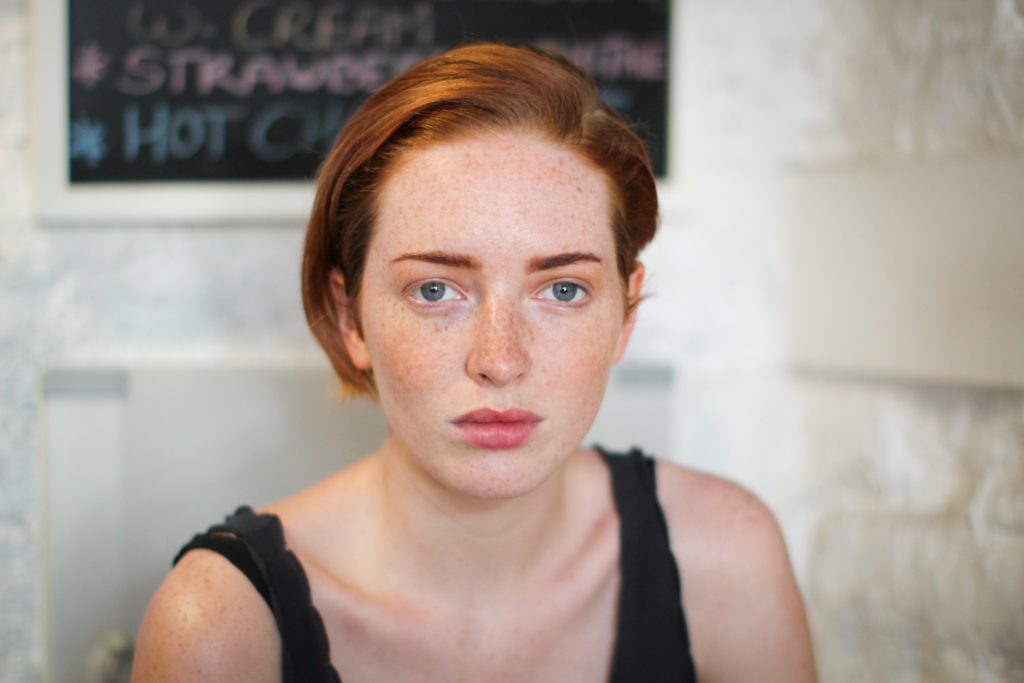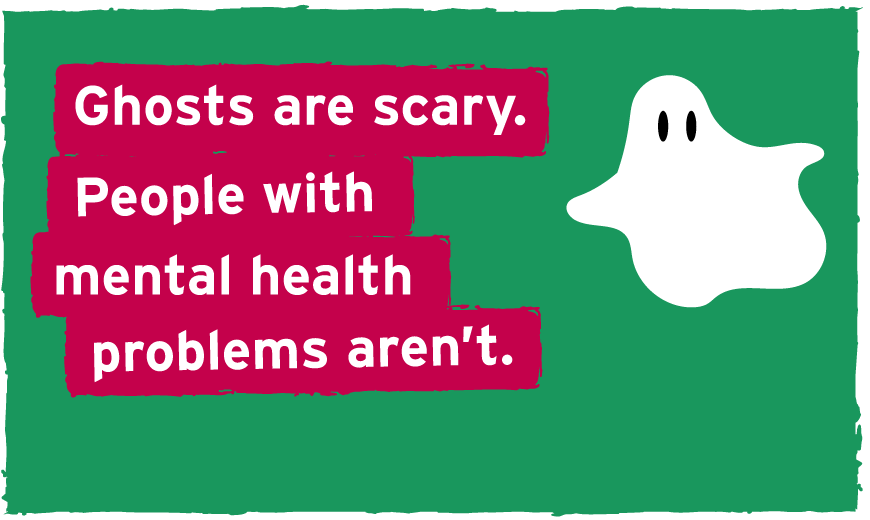Halloween can be a tricky time for the depiction of people with mental health problems. From costumes to horror movies, false perceptions persist about people with mental health problems being violent.
It’s not hard to navigate Halloween in a way that’s sensitive and respectful to people with mental health problems. Read our tips below to have a fun, stigma-free Halloween.
1) Think about your costume
Think carefully about whether your costume might perpetuate misconceptions about people with mental health problems.
In recent years, a number of retailers have sold ‘mental patient’ costumes, complete with bloody clothing, strait-jackets and face masks. In 2013, Asda and Tesco were forced to withdraw ‘mental patient’ costumes after customers complained.
The suggestion that people with mental health problems are violent and dangerous is a misleading one. In reality, the vast majority of people with a mental illness are not violent – in fact, they are more likely to be victims of violence than perpetrators. Wearing a ‘mental patient’ costume perpetuates unhelpful stereotypes and can be upsetting for people who do have mental health problems.
Last year, Shea wrote a blog for Time to Change about how the mental patient costume affected her.
2)Start a conversation
If you see any examples of stigmatising costumes or other offensive things, you can use it as a way to start a conversation about mental health and stigma. You might want to ask your friends what they think about the costume, and whether they think it’s acceptable. If someone you know personally is wearing an offensive costume, and you feel comfortable doing so, you could gently challenge them and ask if they’ve thought about the impact their costume might have.
If you see a costume being sold that you find offensive, you can complain directly to the company that sells it via email or social media. Similarly, if you see media coverage that you object to, our media guidance will help you make a complaint to the relevant organisation.
3)Share some Halloween trivia
Impress your mates with some fun facts about Halloween:
Jack o’ lanterns originated in Ireland where people would put candles in hollowed-out turnips to ward off evil spirits on the Samhain holiday.
Most experts trace trick-or-treating to the European practice of “mumming,” or “guysing,” in which costume-wearing participants would go door-to-door performing choreographed dances, songs and plays in exchange for treats.
Hallowe’en is also known as All Hallows Eve, which marks the day before All Saint’s Day – a Catholic festival which was first observed in 609 AD.
4)Look out for your friends at parties
Social gatherings can be a difficult place for people with mental health problems, and you might find your mates might need to take a break. Check in with your friends every so often, and if they need it, take them to a quiet place for a little while or outside for some fresh air. It’s a small thing, but it’ll make a big difference.
5)Apple bobbing
Apple bobbing is a great old-fashioned Halloween activity. Fill a big tub or bucket with water, and throw some apples in there. The apples will float, and the aim of the game is to catch the apple in your teeth. You’re not allowed to use your hands, though!
Did you know? The tradition of apple bobbing dates back to Roman Britain: it is thought to be a merging of local Celtic traditions with the festival honouring the goddess Pomona.
6)Triggers and films
If you’re having a movie night in with friends, be aware that some subjects might be triggering for people. For example, someone who was attacked in the past might experience post-traumatic stress symptoms if they watch a film that contains certain types of violence. If your friend raises concerns about a particular movie, be aware that it might be harmful for their mental health – there are plenty of films everyone can agree on!
7)Bake some Halloween treats
Why not dust off your oven gloves and bake some tasty treats for Halloween? Here are some of our favourites:
8)Have fun
Halloween is supposed to be fun, and it’s completely possible to have a great, spooky time without stigmatising people with mental health problems. Just be aware of any offence you might be causing, and watch out for your friends, and you’ll be on your way to a stigma-free Halloween!


